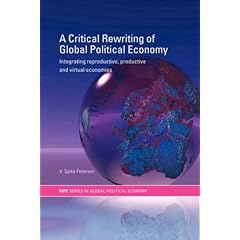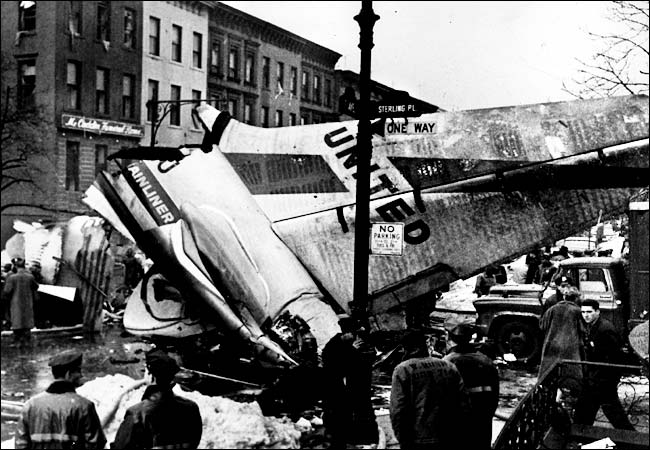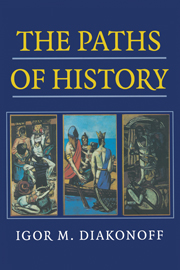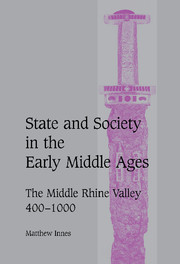
[Following the UK publication of Serres' La Légende des Anges, this interview was commissioned by Wired. They never ran it, considering it too obscure and 'too French'. Also present in front of the fire at the Hazlitt hotel in Soho was James Flint. Serres kindly spoke in English and I have retained most of his quirky phrasing.]
source Interview Transcript London 10th January 1995
HK:Why are angels important for someone thinking about new media and communications?
MS: In my book about angels I try to put a short circuit between the very ancient tradition of angels in monotheistic or polytheistic traditions and the jobs now about messages, messenger and so on. I think that this connection, between ancient time and new time is very interesting to understand. In one hand the ancient forms and ancient traditions and in other hand the new and the real jobs about medias. Because our job - your job is to receive messages, to translate messages, and to send messages in some respect. Your work is about messages. You are a messenger. I am a messenger. I am a professor. You are a journalist. Our job is about messages.
HK: I'm interested in what you say about history. People conceptualise the present day as a time when there has been a rupture with the past. You are deliberately making a link between the two.
MS: The problem is to think about the historic link between ancient time and the new world because this link is cut and many people think about our time without reference to traditions. But if you read the amount of books about angelology in the middle ages, if you translate certain words into modern language you see that all the problems were about translation, about messages. These are exactly our problems. When you put a short circuit, you obtain sparkles and these sparkles give light to the traditions and our jobs.
HK: Part of the effect of using the trope of the angel to understand communication seems to me to invest our world, the modern world with a sense of the sacred. Would you agree with that? Maybe you would make a distinction between the sacred and the spiritual.
MS: Yes, the spiritual. My first point was to understand and to clarify our jobs in a practical way. But I avoid in certain the spiritual problems. I prefer to speak about logical problems or practical problems. The problem of good and evil for instance is very easy to explain when you see that the messenger or channel is neutral, and on a neutral channel you can say I love you or I hate you.
HK: The channel itself is neutral.
MS: Yes, and the problem is not spiritual. The problem is to explain why with the same channel, the same messenger, you can get bad or good results. You see?
HK: Perhaps. You're saying your book is a book of ethics.
MS: In many ways, yes you are right.
HK: But you're saying we should approach ethics not in terms of some a priori sense of the spiritual, but framed in terms of transmission and communication.
MS: Yes. I can give an example of ethics. I am a professor, and when I give a lecture, in the beginning I am Michel Serres, I am the real person who speaks. I must make a seduction for my students. I may begin with a joke, for example. After that I must disappear as a person on behalf of the message itself. The problem of disappearing as myself to give way to the message itself is the ethics of the messenger. Do you see what I mean?
HK: So you reduce your own subjectivity
MS: Yes, the reason why angels are invisible is because they are disappearing to let the message go through them.
[We have a conversation about whether the tape recorder is working]
MS: You are terrified of it?
HK: I spoke to Daniel Dennett for two hours and none of it was recorded.
MS: I think it was a bad angel in the middle of your conversation. That was a good example. That machine is a token of communication, a channel.
[laughter]
HK: You say our work, our modern work is as communicators and message bearers. In the book you give a history of labour. Tell me more.
MS: There are three steps. In the beginning our parents, our ancestors were working with physical energies, with the body, with their muscles, as peasants. Do you remember the caryatids who supported Greek temples, or Atlas, who carried the sky on his shoulders? These are figures of the first type of work.The second step is transformation of metals by engines and machines - the industrial revolution. I use three words which are the same word - form, transformation and information - the three steps. In the first step this form was solid as a statue. Atlas, the caryatid. In the second it is involved that the metal becomes liquid. In the third step we are living in the volatile transmission. This word volatile is angelic form. The transmission of message, of code, of signal is volatile. We say now about money that it is volatile, it is turning into the transmission of codes, of messages.
HK: This seems to link with what Deleuze says about relations of speed and slowness
MS: Yes, the faster and faster. The caryatid was steady. Dissolution is taking place. The urban space of Newtown (Villeneuve in French) is a volatile space. All points can be connected to all other points.
HK: Stratification.
MS: Exactly. If you read medieval angelology you find exactly the same demonstrations because all the problems for angelology - what is a message? who are the messengers? what is the messenger's body? - like Saint Thomas Aquinas, the early church fathers, the Pseudo-Dionysius, and so on. In the beginning of my book I quote the problem of the sex of the angels. Everybody smiles about this problem, but it is a serious one, a problem about transmission.
HK: A serious functional problem.
MS: Exactly
W; This is what I began to find when I looked at scholastic philosophy. Having thought it was full of ridiculous problems about angels on pinheads I found that serious problems were simply framed in this vocabulary.
MS: You are right. I was very surprised to find that in the beginning of my career.
W; Let's talk about television. You return again and again to the negative things that tv brings us. I'm interested to know whether all media is a form of pollution, or whether its just the mass media, which makes the viewer or listener passive. I am interested in the possibility of two way media, two way means of communication, an interactive form. Do you think that would be less socially damaging than the mass media?
MS: In the beginning of our history many centuries ago, the Greek fabulist Aesop said that the tongue was the best and the worst thing in the world. This very ancient sentence is exactly the same for us. It is so for the tongue, for language, but also for very sophisticated channels of communication and for instance your question about the TV is a good question because TV is one of the best channels in the world to have information, to have education, to receive instruction, to have OpenUniversity, to have a good lecture, to discover the world. It is the best channel, but on the contrary, do you know that in the US now a typical teenager has seen 20000 murders already in his life, already at fourteen years old. It is the first time in history that we teach murder to children in this intensive way. It is the best channel and the worst at the same time, and it is not a discovery because Aesop told us this centuries ago. I think it is a paradox of communication. When all channel is neutral it can carry the best message and the worst.
HK: You used the word spectacle in your discussion of TV. Do you accept Debord's views on the society of the spectacle, and the way in which the media is used to control us?
MS: It is difficult to control the media
HK: No, is the media an agent of- what is your relation to Debord's analysis of the media, that's what I'm really asking.
MS: I think that Debord wrote many many things which are very ancient opinions. Because power is always spectacle. When you take the example of your kings in England, or our kings in France in the seventeenth century the spectacle always and already exists - on the stage, on coins - it was always spectacle. Alexander the Great discovered that sentence too. But in our day it is the case all power is in representation, of course. But I think, maybe I think the contrary. In the beginning of our conversation we spoke about the invisibility the disappearing of the angels, you remember? But I think that power is more powerful when it is invisible.
HK: So angelic power is of a higher order than physical power?
MS: Yes, and I think the TV has a power which is invisible. Visible power is political power and so on, but the power of the media is intangible. It is difficult to see exactly what power it has.
HK: The name Pantope appears as one of the interlocutors in the dialogue presumably that's Pan Topos, every place.
MS: he is an airline inspector and he travels everywhere.
HK: So in our networked society, what happens to our sense of place? What do these new means of communication do to our sense of our location, the dissolution of our caryatid-like status into something volatile?
MS: Yes, we have no sense of place. I think not. But it is very interesting to describe this new state of life because for instance Pip [the publisher's pr, I think - hk] is English and she works in Paris, you are Indian and you work in London, I am from the South West of France and I work in California, and so on. we have many many places.We have remembrances of our land, your land, I have too. We have two lands. One for work, one for melancholy, something like that. It is very interesting to have two levels of places, or three, because we remember that we did not originate in the place where we work. It is an angelic state of life too.
HK: At the same time we have no stable sense of place, no direct relation with our origin. I'm wondering what happens to the idea of nation, especially in Europe at the moment where there are people fighting and killing for this connection of blood and soil, rootedness in the earth - this Heideggerian way of looking. Is this just anxiety? Is this just because it's slipping away and people are fighting harder to bring it back?
MS: It is very difficult to answer this question , because I think that human beings are not in a place from the beginning of humanity.
HK: So we never did have that relation to our origin.
MS: Yes, we have always been travelling. Maybe we were born in the centre of Africa and we left Africa to go to Europe, to Asia, to America and so on. I think that the human species is always travelling we are the dasein in the sky, not in the land. Do you see what I mean? We are wandering. We are nomads. This is not a new state of things. It is a very ancient state of things. I think the dasein is in the atmosphere.
HK: I read an interview in the journal Lire in which you say nous ne sommes pas intellectuels, je suis artisan. Is this a rejection of your angelic status?
MS: I am in contradiction. A good question. In this question I described my job. I think the job of a writer is a manual job. In the morning I write with my hands. I think the body is the subject of writing, really the body. My experience of writing is not an intellectual experience. It is a bodily experience. I feel myself as a manual worker. The relationship between the writer and his page - do you know that the origin of the word page is pagus the Latin name for the field where the peasant ploughs the earth. Peasant, pagus, page exactly the same thing. When you write you are ploughing a furrow. It is exactly the same labour.
JF: It sets up the same oppositional relationships between the ploughed field and the nomadic hunter gatherer, and writing versus speech.
MS: yes it is possible that writing is ploughing whereas speaking is nomadic. Thankyou.
HK: So does this relationship change when you no longer use a pen? The metaphor no longer applies when you sit at a keyboard.
MS: but on the screen on the computer you have the same lines.
HK: So it's the same
MS: it's more and more softer and softer, always the same law, softer and softer. But I think the sensation of writing is always bodily. When you write a thesis for instance, you are always translating messages from other books to your book, but when you write really you have a manual experience.
HK: Several times in the book you mention Maxwell's demon, which simply does a work of sorting. This seems to be the same thing as rearranging materials in this intellectual way but then you draw a distinction between this and real writing, bodily writing. I'm wondering if there is a real distinction or whether the two are wrapped up together, a writing of the origin, and a writing that's deferred?
MS: I can't describe a difference because in the case of Maxwell' s demon, the problem is to recognise a molecule and to decide whether this molecule is for entering or rejecting from the gate. It's a work of judgement to recognise, to judge, to give it passage - but the work of a writer is not the work of a judge. It is work of another kind. [very long pause] It is not a work of judgement.
HK: We have such problems now with the idea of original creation, a sense of belatedness, of just rearranging material. So we can still say its more than a sorting process, a rearranging of materials.
MS: Yes
HK: You call yesterday's media, their interrelation, a millefeuille, a series of parallel strata. You say that with new media, links are being made between previously separate strata. I'm wondering whether you're just talking about convergence - the TV and the computer becoming one box. Is it just this, or is there something more to this linking? It seems to connect to the space of Villeneuve, the thought of an interconnected, non hierarchical space.
MS: I think that this world is more and more connected, but the problem is to know if the reality is expressed by our media, and what sort of reality. I think that now the media doesn't express the reality of things, but it promotes a new reality, an original reality of the media's own. For example, when you go out one morning from your house, your father looked at the sky to see if it would rain. But nowadays, you don't look at the sky, you look at the TV. Reality is not the sky, reality is the screen . The screen doesn't express the reality of the sky, but its own reality. Another reality. A very self-referential reality. Twenty or twenty five years ago the TV was in your apartment. Now the apartment is in your TV. You see what I mean? You are in the reality of the media, and not in reality. For instance the Gulf War -
HK: The Baudrillard point
MS: Exactly it was a TV war, without reference to reality:
JF: Ballard remarks that Britain and perhaps France because we have relatively few channels, we are more mediated than the US because there are so many channels and it's on all the time like wallpaper.
MS: The increasing number of channels doesn't really change the situation. whether you have ten or two hundred channels, they all say the same thing., The reality doesn't change,
HK: Here's a question about the difference between French intellectual culture and Anglo-American intellectual culture. In France you can write a book like Angels, which is a highly poetic book, a highly literary book, and it will be accepted as being a work of value to people working in both the arts and sciences, whereas in the intellectual tradition of Britain and America there is this division between the two. The type of writing which is acceptable to the scientific community is one very specific type of writing, and anything which smacks of the poetic is antagonistic to their idea of truth. So how would you defend yourself to a British scientist, and say my work is of value for you to understand communication?
MS: I have two answers. The first one is I think that we have in France a very old tradition of linkage between science and philosophy. It was the case in the eighteenth century with Rousseau, Diderot, with Voltaire, with the Newtonian and novel writer and so on. But this link has not been functional for a century, because the problem's second answeris not the difference between French and AngloSaxon traditions, it is the difference between university and nonuniversity. The problem you're asking about is the tradition within the university, because there you are divided by department and speciality and so on. It is very difficult to put a link between science and philosophy, science and literature and so on. But in France, the philosophical tradition is out of the university. Why? Because in the university they spoke Latin, and philosophers spoke French. The difference was fundamental for the French tradition. Latin disappears around the middle of the nineteenth century. For instance, Bergson wrote his thesis in Latin
HK/JF : No way!
MS: In the beginning of the twentieth century! On Aristotle's theory of space [H. Bergson, Quid Aristoteles de loco senserit (Paris: Félix Alcan, 1889) - hk]
HK: So the reason that the French tradition in which you stand is so hybrid, so mixed, is that it's a vernacular tradition, highly separate from this academic, scholastic tradition.
MS: This is it. In France we have a philosophical tradition outside the university. The second answer is that my difficulty is that I' m a professor in a university, and it's very difficult for me to realise this linkage. It was a struggle for me all my life, to write in my tradition and against the university. My last book was about this problem. I am editor of a corpus of French philosophy, and we edited a hundred books of this tradition. For the last book I wrote a book last year about French philosophy, and discovered this distinction. I think that tomorrow our problem will be how the media begins to teach, to learn. We have a view of Open University In the media, and at this moment science, technology comes out of the university into the networks, and the problem is in or out of the university. This is the moment of the problem. The problem is now. The university must come out of the university onto the net. My last book was about this problem. Its title was Atlas - a geographic description of networks, not the giant.
HK: I am interested in Mille Plateaux and the work of Gilles Deleuze. What academic and personal relationship did you have with Deleuze?
MS: Deleuze was - I lost my best friend last month, because Deleuze was my best friend. I admired him. I loved him. When we were young we were very separate. Together we invented the term amis de vieillesse. You know the expression amis de jeunesse? We were not amis de jeunesse. We became amis de vieillesse. And why? Because we are a little bit brothers. I think that Deleuze is a geographer, and I am too a geographer. We are not historians. I think for instance that Deleuze's philosophy is full of fluxes. And what fluxes? Prepositions in my case! I have a chapter in my book about prepositions. Prepositions are the algebra of fluxes. I don't think he committed suicide. It was impossible to breathe - he opened the window and …
HK: It wasn't in his character to do that?
MS: Not in his character. Not in his philosophy. It was impossible.







































